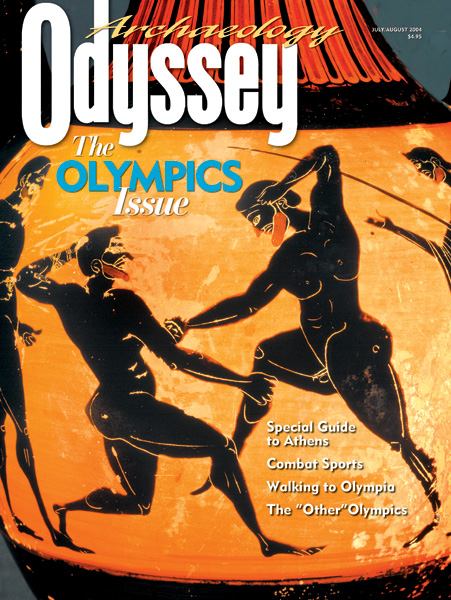Archaeology Odyssey, July/August 2004

Features
It’s one of history’s curiosities. A rural sanctuary of Zeus in a relatively obscure part of Greece—far from the bustle and brilliance of Athens—became the site of the most famous athletic-religious festival of the entire ancient world, the direct precursor of the modern Olympic Games. As in antiquity, we call these celebrations Olympiads, and […]
“There was a man who thought the journey to Olympia would be too much for him, and Socrates said: ‘What are you afraid of? Don’t you walk around all day in Athens? Don’t you walk home to have lunch? And again for dinner? And again to sleep? Don’t you see that if you […]
The Olympics may be the best known of ancient Greece’s athletic competitions, but the sanctuary at Olympia was only one of four sites where games were held. Greeks also flocked to games at Delphi, Isthmia and Nemea. These so-called panhellenic festivals were governed by a sacred truce that protected people traveling to any of […]
“You know that the Olympic crown is olive, yet many have honored it above life,” wrote the Greek orator Dio Chrysostom (c. 40-110 C.E.).1 Indeed, the occasional philosopher or doctor may have condemned the brutality and danger of ancient athletics, but the Greek public nevertheless accepted a good deal of hazard, injury and death.2 […]
